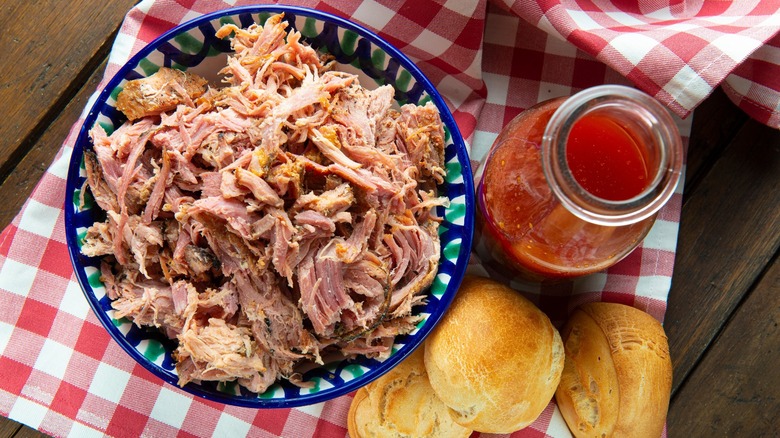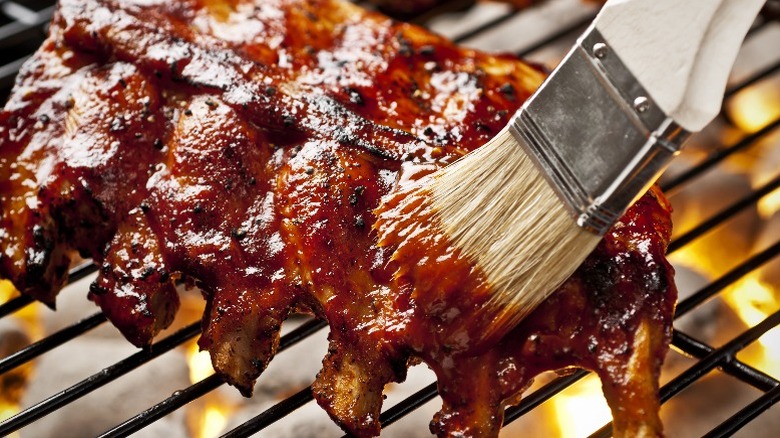What Makes North Carolina Barbecue Unique?
Few things will get Carolinians riled up like a barbecue debate. And should you invite them over for a "barbecue," they may be expecting some tender, fall-off-the-bone smoked pulled pork. "Cookouts" are for burgers and hot dogs. This is because North Carolina has a long history of perfecting its barbecue cooking techniques and accompanying sauces. There are three main requirements that come together to make the unique and piquant pork the region is known for.
Carolina barbecue requires that the meat must be cooked slowly over an open fire. Local wood like hickory, oak, maple, and apple will fuel the flames. Pork is always the protein of choice, and any part is acceptable, but regions may have their own preferences regarding the use of whole hog, stomach, ribs, and most commonly, the shoulder, for pulled pork. Finally, the pig will be coated in and served with a vinegary barbecue sauce because forgetting to do so may result in the cardinal sin of pork cooking: having dry, bland barbecue.
A guide to North Carolina barbecue sauces
Eastern and Western North Carolina residents like to do barbecue their own way. The Eastern side tends to cook whole hogs and use a plain peppery, vinegar-based sauce with a spice kick. Western Carolina (Lexington-style) goes with the pork shoulder in a tomato, brown sugar, Worcestershire, and vinegar-based sauce with a thicker consistency. Barbecue purists will claim that Eastern is the true way, but Western Carolinians will agree that Lexington-style is superior. Whether someone adds tomato, mustard, or even hot sauce to their recipe, vinegar remains a key ingredient. And the best kind will often be apple cider vinegar — after all, the Blue Ridge Mountains are full of blooming orchards from local farmers. It's the one ingredient that your store-bought barbecue sauce might be missing.
Barbecue has a whole food culture of its own in North Carolina. It's not uncommon to see giant smokers outside the back of a restaurant (or parked in front of gas stations) cooking up fresh pork for the day. Sides often include mac and cheese, pickles, hush puppies, corn, fries, and coleslaw that may be served on the side or between the buns of a pulled pork sandwich. Folks will grab North Carolina's most beloved soda, Cheerwine, to complete their barbecue meal in a gesture called "the Southern handshake." The sauce, open-flame cooking, and use of pork all contribute to North Carolina's unique food culture with inter-state differences adding to the many ways people can enjoy a good barbecue.

